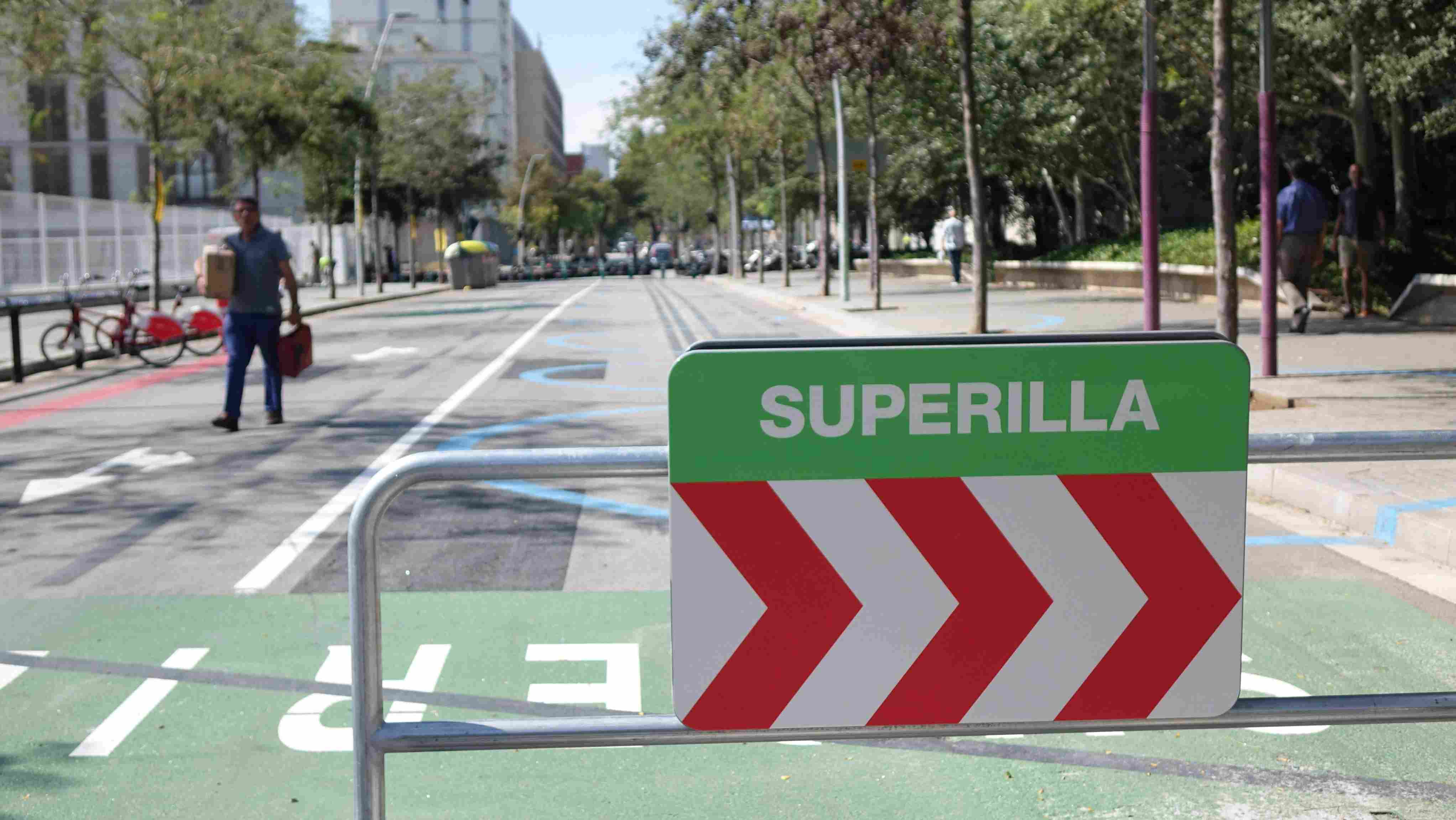It had already happened in Barcelona City Council's last urban planning committee meeting, but today it was repeated, clothed with the solemnity of the Municipal Plenum: all the political groups in Barcelona city, with the exception of Barcelona en Comú, voted in favour of a Together for Catalonia (Junts) proposal that urged the city government to "stop the implementation of the superblocks, by not allowing new tenders or projects", and to carry out an "impact assessment" of these developments on aspects such as "the economy, mobility and air quality for the city as a whole". In a council meeting that was marked by the pre-electoral climate that had infused the (successful) passing of the city budget for 2023, it was possible to visualize the zero support that Ada Colau's party has regarding its photogenic but controversial Superblock Model (in Catalan, superilla), a matter on which not even the junior partner in the city government, the Catalan Socialist Party (PSC), supports the mayor.
For Junts, Jordi Martí Galbis spoke in support of the motion, recalling that already in the committee "31 out of 41 councillors voted to stop the Superblocks", and celebrating that the deputy mayor Jaume Collboni had said that it is necessary "stop the superblocks, turn off the machines and see how it has gone". For this reason, addressing the deputy mayor Janet Sanz, who at that moment presided over the meeting, he said: "You have been left alone". He argued for the need to "stop the project and go in a new direction", defending as an alternative the need to convert more interior areas of blocks into green areas in the Eixample and remembering that "90% of vehicles that cross the Eixample come from outside Barcelona and need an alternative to public transport."
The proposal had the support of the other parties, but the stand-out support came from the PSC, verbalized by the third deputy mayor, Laia Bonet, who detailed that with regard to the Superblocks, the Socialists see contradictions such as "that the space reserved for public transport is very limited" and that at the moment, the only scientific study on this urban planning model, prepared by the Supercomputing Center "tells us that traffic circulation had not been reduced, but redistributed". That is why she showed herself in favour of stopping the superblocks, although with the proviso that the works that are underway should be finished, "but not to begin new projects until we have answers about reducing pollution, increasing traffic, affecting transport public and rental prices".
For Barcelona en Comú, it was Janet Sanz who defended the superblocks, indicating that despite the proposal to stop them from going ahead, "the reality will not change, which is that the superblock model works". From the Comuns point of view, this urban transformation has reduced pollution by 30%, increased small business sales and is a model recommended by the UN". In addition, Sanz criticized the Catalan Republican Left (ERC) and the PSC for targeting Junts' "denialism and retardation" and pointed out that this "is very expensive for people's health", while adding that the green areas in the interior of the Eixample district's blocks "do not reduce pollution".
Superblocks will not be reversed
Thus, the vote at this council meeting will not mean that current works are stopped, but only that new tenders and projects will be halted. Nevertheless, it paves the way for a future municipal government arising from the May elections, which will not be committed to prior contracts to build new superblock projects and will be able to set the new direction that Martí Galbis referred to. In the same plenum, the Valents group presented another proposal that demanded the immediate "reversion" of the Eixample Superblock, but this did not succeed.

